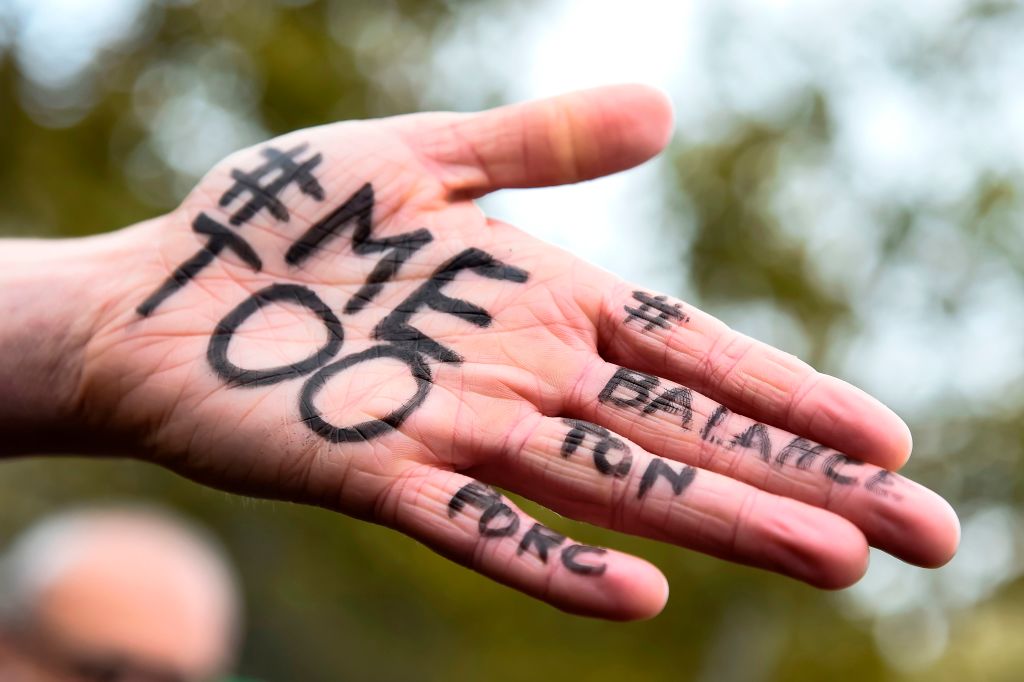Almost a third of young women think that winking is a form of sexual harassment. Let that sink in. For 28 per cent of women aged 18 – 24 the merest flick of an eyelid, an action so small as to be barely noticeable, is considered to be unwanted sexual behaviour that violates their dignity, makes them feel intimidated, degraded or humiliated and creates a hostile or offensive environment.
Now, I’m normally first in line to point out the flaws in surveys that tell us only the views of a small number of people motivated to answer questions about sexual harassment. But the YouGov research lands at a time when stories about sexual harassment dominate news coverage. It comes on the back of a BBC survey claiming half of women are sexually harassed at work. Both add weight to the growing perception that to be a woman today is to face a constant barrage of abuse.
These reports and surveys tell us little about what goes on in the typical workplace but they do offer an alarming insight into the way sexual harassment is defined nowadays. Almost 70 per cent of young people interviewed by YouGov, both men and women, consider wolf whistling to be sexual harassment. A quarter of the respondents to the BBC survey said the sexual harassment they had experienced was jokes or banter. What’s surprising here is that so few women claim to be victims: presumably those who’ve never been whistled at or overheard a lewd joke all work in a nunnery.
When sexual harassment is defined so broadly it becomes meaningless. We have no way of differentiating between winking, knee touching, groping and sexual assault. All fall under the same heading. This risks trivialising the most serious incidents. When the language of sexual harassment is used for whistling and winking we lose the vocabulary to describe real crimes.
For campaigners, there are clear advantages to conflating winking and groping. Grouping together such a wide range of behaviours and arguing they are all on a continuum of abuse allows all men to be labelled as perpetrators and all women to see themselves as victims. But if this is bad for men, it is terrible for women. It is far more difficult for women to present themselves as strong and powerful at work if, at the same time, they insist upon being treated as victims-in-waiting. What’s more, it sends a message to young women that the workplace is a hostile environment where the odds are stacked against them.
And it does seem to be younger women who are most susceptible to seeing themselves as victims. YouGov’s survey on sexual harassment in public places points to a generational divide. Younger women are more likely than older women to say they have been harassed in the last five years. This might be because older women are less likely to be on the receiving end of wolf whistles and cat calls but it also suggests that how sexual harassment is defined varies with age. Two thirds of young women consider wolf whistling to be always or usually sexual harassment compared to just 15 per cent of women over the age of 55.
It’s tempting to decry these statistics as another illustration of the fragility of generation ‘snowflake’. But this lets an older generation of feminist activists off the hook. Girls today come to imbibe the message that they are victims of male aggression from a very young age. It’s presented to them at school, in Girl Guides and other clubs, on television programmes and nightly news bulletins.
The panic around sexual harassment leads to calls for greater regulation of the workplace. But when everyday interactions between men and women, mild flirtations and clumsy attempts at chatting someone up are all outlawed the world becomes far more dull a place. Like it or not, we spend a great deal of our lives at work. Many happy marriages have begun with people meeting in the workplace. Telling young people this is harassment robs them of life’s pleasures.
The term sexual harassment once served a purpose in highlighting a particular problem faced by women employed in poorly paid and insecure jobs. Today it has become meaningless. Instead of discussing an all-encompassing sexual harassment it would be better if we referred instead to specific behaviours. That way we can better separate trivial irritations from criminal behaviours and in the process we can stop encouraging young women to see themselves as victims.







Comments